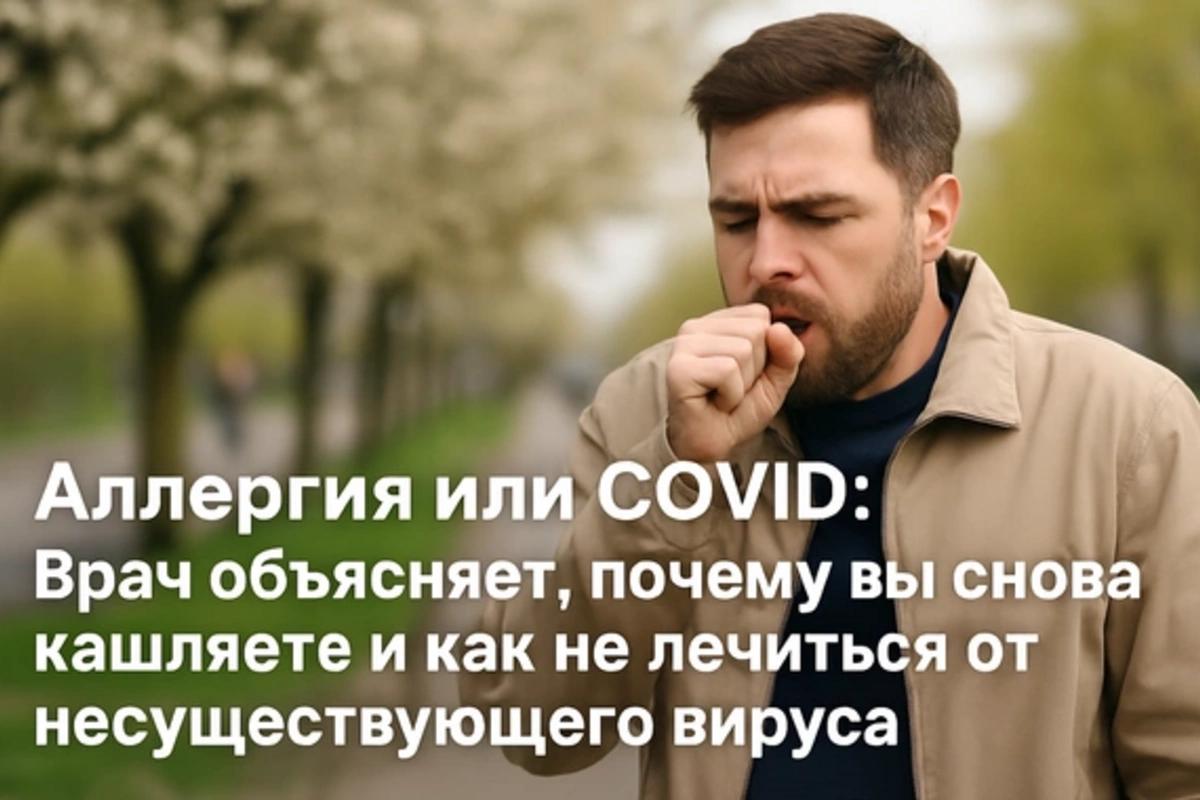01 May , 16:00 2025
0

With the arrival of spring, pharmacies are once again facing a shortage of antibiotics and antiviral drugs, and on the streets, you can increasingly encounter coughing passersby. Many citizens are convinced that this is another wave of COVID-19. However, medical specialists warn: in 7 out of 10 cases, this is allergies, not an infectious disease.
📢 "Thousands of patients come to me with a temperature of 37.1 and dry cough, thinking they have coronavirus. In reality, it's seasonal rhinitis or a reaction to pollen," says otolaryngologist Oleg Abramov.
| Symptom | COVID-19 | Allergy |
|---|---|---|
| Temperature | Often high (38–39°C) | Rarely above 37.2°C |
| Cough | Dry, persistent | Dry, but relieved by antihistamines |
| Runny nose | Thick, congestion | Clear discharge, sneezing |
| Body aches | Often | No |
| Itchy eyes, tears | No | Yes |
Many people, frightened by the appearance of cough and feeling of weakness, prescribe antibiotics to themselves. Such self-medication can lead to serious consequences:
destruction of intestinal microflora
decreased immunity
development of drug resistance
🧬 "Antibiotics don't treat viruses and allergies. Their uncontrolled use makes you vulnerable to real infections," emphasizes infectious disease specialist Elena Voronina.
Rinse your nose with saline solutions
Take antihistamines (Cetrin, Loratadine)
Take a COVID-19 test if you have doubts
Don't panic: if there's no fever and pain - most likely, it's allergies